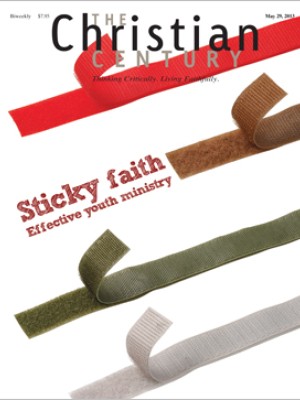Jerusalem court upholds women’s right to pray at Western Wall
Women who want to wear prayer shawls while praying in the women’s section of the Western Wall are not breaking the law, according to a landmark decision handed down April 25 by the Jerusalem District Court.
Israeli police arrested five women on April 11 who were dressed in prayer shawls while praying with Women of the Wall, an activist group that prays at Judaism’s most sacred site once a month.
Immediately following those arrests, a lower court judge ruled that the women had not violated “local custom,” a legal concept intended to keep the fragile peace at holy sites. The Western Wall is a remnant of the Second Temple that was destroyed nearly 2,000 years ago.
Read our latest issue or browse back issues.
Thursday’s ruling by the higher court upheld that ruling and rejected an appeal filed by the police, who argued that Women of the Wall’s practices violate a 2003 Supreme Court decision and disrupt the public order.
Israel’s ultra-Orthodox religious establishment has long maintained that the group’s practices offend more traditional Jews, who believe only men are allowed to lead group prayers or wear prayer shawls.
Following the April 25 ruling, Anat Hoffman, the group’s chairwoman, said that “today, Women of the Wall liberated the Western Wall for all Jewish people. . . . We did it for the great diversity of Jews in the world, all of whom deserve to pray according to their belief and custom at the Western Wall.”
Shira Pruce, the group’s spokeswoman, said the struggle will continue until they see “girls permitted to have a bat mitzvah (coming of age ceremony) at the Wall with a Torah, with a tallit (prayer shawl), or however they wish and believe.”
In a statement, Natan Sharansky, the chairman of the Jewish Agency and a government emissary charged with trying to quell the dispute, said the ruling “only strengthen(s) the need for a sustainable, agreed solution, which will allow every Jew to feel at home at the Western Wall, as the basis for any resolution.”
Sharansky had recently proposed adding a third egalitarian section that would allow mixed-gender prayers.
A spokesperson for the Justice Ministry told the Times of Israel that it was too soon to comment on a possible appeal by the state prosecutor to the Supreme Court. A police spokesperson could not be reached for comment. —RNS
This article was edited on May 14, 2013.






